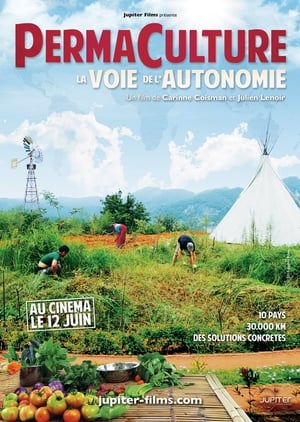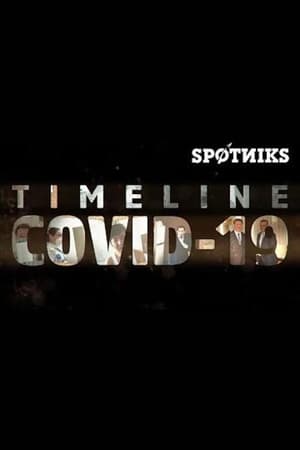
Children Of The Vine(NaN)
A global nightmare is unfolding as farmers and scientists stand at a crossroads questioning the impacts of pesticides and herbicides on human health. At the center of this controversy is glyphosate, the primary active ingredient in Monsanto’s Roundup, the most widely used herbicide in the world. Glyphosate was recently identified as a possible cancer causing agent and is now found in breast milk, baby food, wine and 80% of food grown in the United States. Why is glyphosate filtering into so many facets of our daily lives? And why are countries banning glyphosate while the United States uses more of it than any other country in the world? Children Of The Vine will peel back the curtain on the flawed regulatory practices that are causing more harm than good to public health while also revealing the scary science behind toxic farming practices. In the end, this solution driven documentary will highlight more sustainable large scale farming practices capable of feeding the world.
Movie: Children Of The Vine

Children Of The Vine
HomePage
Overview
A global nightmare is unfolding as farmers and scientists stand at a crossroads questioning the impacts of pesticides and herbicides on human health. At the center of this controversy is glyphosate, the primary active ingredient in Monsanto’s Roundup, the most widely used herbicide in the world. Glyphosate was recently identified as a possible cancer causing agent and is now found in breast milk, baby food, wine and 80% of food grown in the United States. Why is glyphosate filtering into so many facets of our daily lives? And why are countries banning glyphosate while the United States uses more of it than any other country in the world? Children Of The Vine will peel back the curtain on the flawed regulatory practices that are causing more harm than good to public health while also revealing the scary science behind toxic farming practices. In the end, this solution driven documentary will highlight more sustainable large scale farming practices capable of feeding the world.
Release Date
Average
0
Rating:
0.0 startsTagline
Genres
Languages:
Keywords
Similar Movies
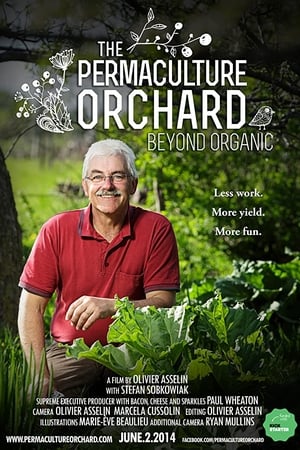 0.0
0.0The Permaculture Orchard: Beyond Organic(fr)
This feature-length educational film teaches you how to set up your own permaculture orchard at virtually any scale. We recognize the limitations of the organic model as a substitute to conventional fruit growing, and want to propose a more holistic, regenerative approach based on permaculture principles. Based on 20 years of applied theory and trial and error, biologist and educator Stefan Sobkowiak shares his experience transforming a conventional apple orchard into an abundance of biodiversity that virtually takes care of itself. The concepts, techniques and tips presented in this film will help you with your own project, whether it is just a few fruit trees in your urban backyard, or a full-scale multi-acre commercial orchard.
 0.0
0.0Herbicide Trials(en)
In 1983, fifteen Cape Breton, Nova Scotia, landowners went to court to stop the spraying of herbicides by the local subsidiary of a Swedish multinational on forests adjacent to their properties. They found that the testimony of scientists and the support of public opinion, both here and abroad, were not enough to win their case. The film shows their ordeal and the landmark Sydney trial. Concerns raised included potential conflict-of-interest situations where a government must protect citizens' health while supporting certain kinds of industry; the relative value of the political and judicial processes in mediating social problems; and the need for a public forum for debating environmental issues. The film contains outstanding footage from chemical-industry films of the 1950s and recent material about Vietnam veterans affected by Agent Orange.
The Fields of Immokalee(en)
For decades, migrant workers have worked the fields of Immokalee, harvesting tomatoes, peppers, eggplants, oranges and other produce that is then shipped across the United States of America. Many of the workers are undocumented, and attempting to keep their jobs even as federal migration crackdowns hover over the town. The Fields of Immokalee film follows the daily lives of tomato workers, from the 5:00am trips to the parking lot in hopes of finding day labor, to work sessions in the scorching mid-day heat, to child detention centers for migrant youth that have been separated from their families. Via these vignettes, the film offers insight into the most volatile political issue of our time.
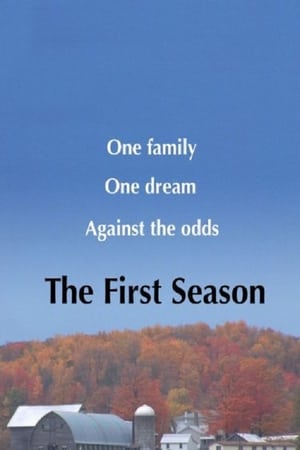 0.0
0.0The First Season(en)
Paul and Phyllis van Amburgh, believing that a small, family farm is the best place to raise their children, take their life savings and buy a defunct dairy. With three children and a fourth on the way and armed only with their principles and determination, they fight to defy the odds as they become full time farmers. THE FIRST SEASON, through an intimate, cinema verite style, bears witness to the Van Amburgh's struggle as they fight against relentless toil, financial ruin and the harsh reality of diary farming to achieve their version of the American dream.
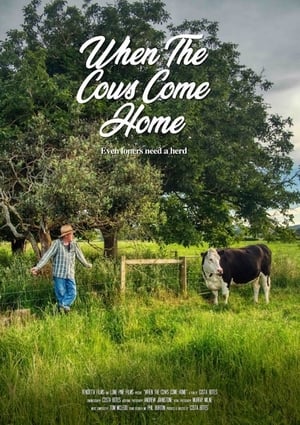 0.0
0.0When the Cows Come Home(en)
When the Cows Come Home introduces audiences to Tilly and Maggie, a pair of cows that musician, journalist, artist and cow whisperer, Andrew Johnstone has befriended and subsequently saved from slaughter. The garrulous herdsman is enthusiastic to expound his views on animal husbandry, bovine communication and the vagaries of life in general, before the film walks us back through the events that have shaped the singular farmer-philosopher. From personal family tragedy to warring with Catholic school authorities, innovating in Hamilton’s nascent music scene to creating guerrilla art installations; Johnstone’s life has had a truly idiosyncratic trajectory. Mental health issues may have seen him retreat to life on the farm, but the film makes clear its subject’s restless inquisitiveness is far from being put out to pasture.
 6.3
6.3King Corn(en)
King Corn is a fun and crusading journey into the digestive tract of our fast food nation where one ultra-industrial, pesticide-laden, heavily-subsidized commodity dominates the food pyramid from top to bottom – corn. Fueled by curiosity and a dash of naiveté, two college buddies return to their ancestral home of Greene, Iowa to figure out how a modest kernel conquered America. With the help of some real farmers, oodles of fertilizer and government aide, and some genetically modified seeds, the friends manage to grow one acre of corn. Along the way, they unlock the hilarious absurdities and scary but hidden truths about America’s modern food system in this engrossing and eye-opening documentary.
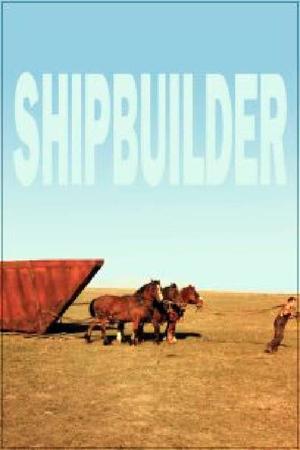 0.0
0.0Shipbuilder(en)
This film recreates the true story of Tom Sukanen, an eccentric Finnish immigrant who homesteaded in Saskatchewan in the 1920s and 1930s. Sukanen spent ten years building and moving overland a huge iron ship that was to carry him back to his native Finland. The ship never reached water.
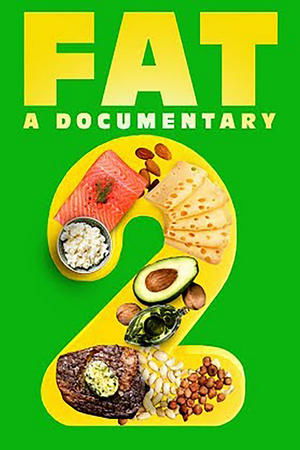 6.6
6.6FAT: A Documentary 2(en)
FAT: A Documentary 2 is the sequel to the international sensation that delves deeper into the lies and myths surrounding the age old question: "What should I be eating?"
 0.0
0.0The Real Anthony Fauci(en)
Different experts make a stand against today's putatively criminal and harmful health system, focusing on Anthony Fauci and his role in the shaping of the AIDS and COVID-19 epidemics.
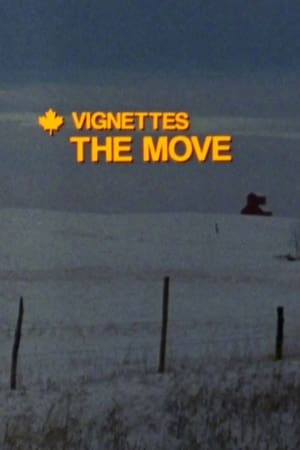 0.0
0.0Canada Vignettes: The Move(en)
In this short documentary from the Canada Vignettes series, a Saskatchewan grain elevator is moved across the snow-covered prairie to a new home after nearly a half-century of use. The film follows the lifting and transporting of the 9-storey, 200-ton structure, and examines the feelings of the people as they witness the final passing of their town's one and only grain elevator.
 7.0
7.0Unrest(en)
When Harvard PhD student Jennifer Brea is struck down at 28 by a fever that leaves her bedridden, doctors tell her it’s "all in her head." Determined to live, she sets out on a virtual journey to document her story—and four other families' stories—fighting a disease medicine forgot.
 0.0
0.0Muitos líderes em democracias erraram na pandemia. Ninguém errou mais que Bolsonaro.(pt)
 8.4
8.4Dominion(en)
Exposing the dark underbelly of modern animal agriculture through drones, hidden & handheld cameras, the feature-length film explores the morality and validity of our dominion over the animal kingdom.
Eyewitness DVD: Human Machine(en)
Since the invention of the wheel we have striven to make great machines that would make our lives more productive and efficient, however we will almost certainly never invent a machine as efficient as the human body. Each component of the machine is given in depth attention with the same clarity and insightful touch you have come to expect from the Eyewitness books. There are over 206 bones, half of which are in the hands and feet. A total of 640 muscles contract and exert pressure, working together with our skeleton to turn power and strength into movement and precision. Our bodies are incredibly resilient machines, and conversely life is very fragile. After all, unlike any other, this machine can reproduce itself.
Land Rush(en)
A partnership between the Government of Mali and an American agricultural investor may see 200-square kilometers of Malian land transformed into a large-scale sugar cane plantation. Land Rush documents the hopes, fears, wishes, and demands of small-scale subsistence farmers in the region who look to benefit, or lose out, from the deal.
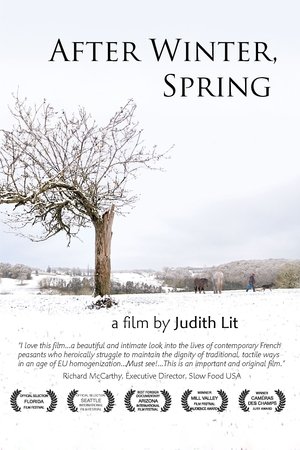 1.0
1.0After Winter, Spring(fr)
Family farmers in southwest France practice an ancestral way of life under threat in a world increasingly dominated by large-scale industrial agriculture.
Dr. Andrew Weil's Guide to Eating Well(en)
One of America's best-known and most respected doctors offers a sensible approach to eating: He emphasizes enjoyment over deprivation, and long-term health benefits over short-term weight loss. Dr. Weil assures us that there is no confusion among nutrition experts about the optimal diet for health, body weight, and longevity. Understanding inflammation to be the root cause of many chronic illnesses, he gives science-based recommendations to help combat specific health concerns, all as part of an anti-inflammatory diet. On the subject of dietary supplements, he talks about what's perilous and what can help.

